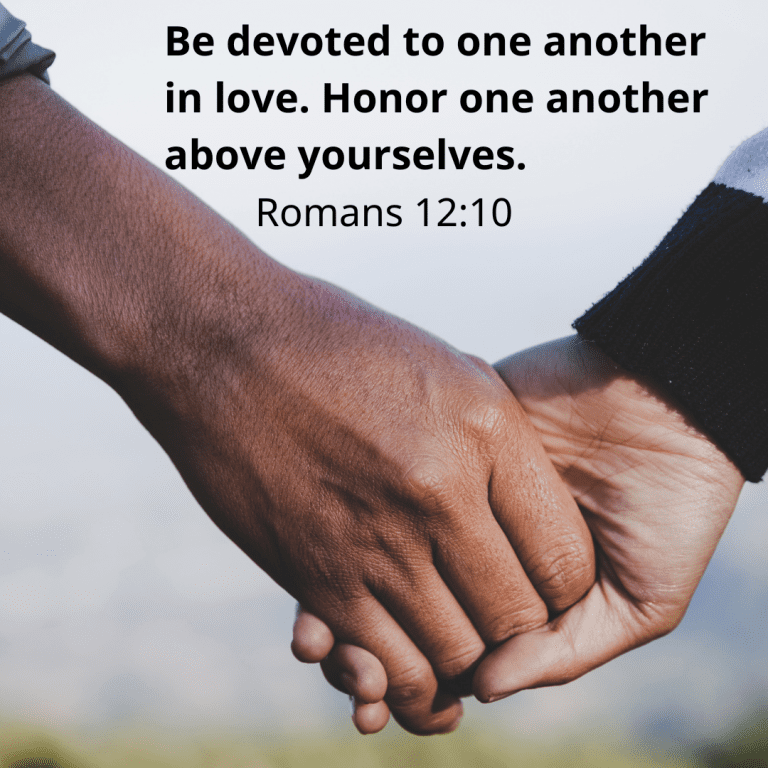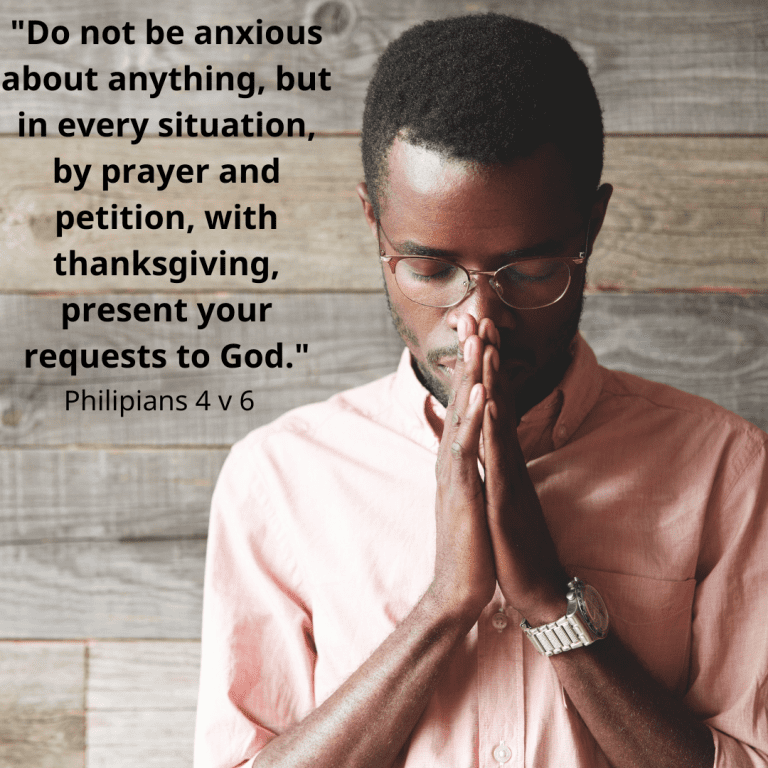Jesus Heals a Man
(Mark 1.40-45Luke 5.12-16)1 When Jesus came down from the hill, large crowds followed him. 2 Then a man suffering from a dreaded skin disease came to him, knelt down before him, and said, “Sir, if you want to, you can make me clean.”
3 Jesus reached out and touched him. “I do want to,” he answered. “Be clean!” At once the man was healed of his disease. 4 Then Jesus said to him, “Listen! Don't tell anyone, but go straight to the priest and let him examine you; then in order to prove to everyone that you are cured, offer the sacrifice that Moses ordered.”
Jesus Heals a Roman Officer's Servant
(Luke 7.1-10)5 When Jesus entered Capernaum, a Roman officer met him and begged for help: 6 “Sir, my servant is sick in bed at home, unable to move and suffering terribly.”
7 “I will go and make him well,” Jesus said.
8 “Oh no, sir,” answered the officer. “I do not deserve to have you come into my house. Just give the order, and my servant will get well. 9 I, too, am a man under the authority of superior officers, and I have soldiers under me. I order this one, ‘Go!’ and he goes; and I order that one, ‘Come!’ and he comes; and I order my slave, ‘Do this!’ and he does it.”
10 When Jesus heard this, he was surprised and said to the people following him, “I tell you, I have never found anyone in Israel with faith like this. 11 I assure you that many will come from the east and the west and sit down with Abraham, Isaac, and Jacob at the feast in the Kingdom of heaven. 12 But those who should be in the Kingdom will be thrown out into the darkness, where they will cry and gnash their teeth.” 13 Then Jesus said to the officer, “Go home, and what you believe will be done for you.”
And the officer's servant was healed that very moment.
Jesus Heals Many People
(Mark 1.29-34Luke 4.38-41)14 Jesus went to Peter's home, and there he saw Peter's mother-in-law sick in bed with a fever. 15 He touched her hand; the fever left her, and she got up and began to wait on him.
16 When evening came, people brought to Jesus many who had demons in them. Jesus drove out the evil spirits with a word and healed all who were sick. 17 He did this to make come true what the prophet Isaiah had said, “He himself took our sickness and carried away our diseases.”
The Would-Be Followers of Jesus
(Luke 9.57-62)18 When Jesus noticed the crowd around him, he ordered his disciples to go to the other side of the lake. 19 A teacher of the Law came to him. “Teacher,” he said, “I am ready to go with you wherever you go.”
20 Jesus answered him, “Foxes have holes, and birds have nests, but the Son of Man has no place to lie down and rest.”
21 Another man, who was a disciple, said, “Sir, first let me go back and bury my father.”
22 “Follow me,” Jesus answered, “and let the dead bury their own dead.”
Jesus Calms a Storm
(Mark 4.35-41Luke 8.22-25)23 Jesus got into a boat, and his disciples went with him. 24 Suddenly a fierce storm hit the lake, and the boat was in danger of sinking. But Jesus was asleep. 25 The disciples went to him and woke him up. “Save us, Lord!” they said. “We are about to die!”
26 “Why are you so frightened?” Jesus answered. “What little faith you have!” Then he got up and ordered the winds and the waves to stop, and there was a great calm.
27 Everyone was amazed. “What kind of man is this?” they said. “Even the winds and the waves obey him!”
Jesus Heals Two Men with Demons
(Mark 5.1-20Luke 8.26-39)28 When Jesus came to the territory of Gadara on the other side of the lake, he was met by two men who came out of the burial caves there. These men had demons in them and were so fierce that no one dared travel on that road. 29 At once they screamed, “What do you want with us, you Son of God? Have you come to punish us before the right time?”
30 Not far away there was a large herd of pigs feeding. 31 So the demons begged Jesus, “If you are going to drive us out, send us into that herd of pigs.”
32 “Go,” Jesus told them; so they left and went off into the pigs. The whole herd rushed down the side of the cliff into the lake and was drowned.
33 The men who had been taking care of the pigs ran away and went into the town, where they told the whole story and what had happened to the men with the demons. 34 So everyone from the town went out to meet Jesus; and when they saw him, they begged him to leave their territory.
Yǝcu mɔŋgwɔ sǝwi tiilǝŋǝ.
(Mɔrgus 1:40-45Luuga 5:12-16)1 Mǝ Yǝcu dappitha-lɔ kaayin-la, nǝ ŋwɔdɔŋw ŋwuuru kwaathitha; 2 mindaŋ nǝ tiilǝŋ iila tette nɔŋw iidǝccǝlɔ nɔŋwɔccǝŋw, “Kweeleny mǝ ǝmmini tǝ, a kwǝthi ŋɔma nyii suuɽi.” 3 Mindaŋ nɔŋw alla ṯii-na nɔŋw mɔmmi, e-ta nɔŋwɔccǝŋw, “Nyii kwǝmminǝ; sɔɔɽɔ naana.” Ŋwɔṯaŋw nǝ ŋiilǝŋ ŋuuŋun irṯathalɔ tɔc. 4 Nǝ Yǝcu ǝccǝŋw, “Iisa a kwandaci kwizi kweere mac; laakin ele kǝniny andaci kaahina rogɽo rɔɔŋwa, mindaŋ, a inḏǝthǝ kwomne kwandisa-gi Muusǝ, ethisi ilŋithini lizi ŋǝni shahaaḏa kweeŋen.”
Yǝcu mɔŋgwɔ sǝwi khaḏaama kǝthi ḏoobiṯ ṯir Rɔɔmaani.
(Luuga 7:1-10)5 Mɔŋw ǝnḏi Kafranaahuum, nǝ ḏoobiṯ ṯette iila naanɔ-ŋgwɔ, nɔŋw daadica-ṯǝ, 6 nɔŋwɔccǝŋw, “Kweeleny, khaḏaam kiinyi ŋgala dɔɔnɔ kinḏirɔ ŋuborkon-ŋi kiraara ṯeṯṯec.” 7 Nɔŋw ǝŋnici nɔŋwɔccǝŋw, “Nyii kwiila nyii sǝwǝ.” 8 Laakin nǝ ḏoobiṯ ǝŋnici nɔŋwɔccǝŋw, “Kweeleny nyii kwende kwovthanna ethǝnyji ŋaaŋwɔ ki-dɔɔnɔ kwiinyi; laakin andisa-ma-ta kandisa domony, e-ta ǝtǝ khaḏaam kiinyi saawi. 9 Kaka nɔrɔny-gwɔ kwette tok kwɔnaanɔ ki-rii-na rǝthi kila lǝthi sɔlṯa; nǝ ninyǝthi sɔlṯa ki-jesh-la, mǝnyii ǝccǝ kwette-ŋw, ‘Nḏi’ ǝṯɔŋw ele, nǝ kwir ter, ‘Ila’ ǝṯɔŋw iila, mǝnyii ǝccǝ khaḏaam kiinyiŋwj ‘Ǝrrǝsi ŋɔ’, ǝṯɔŋwsǝrri.” 10 Mǝ Yǝcu niŋnaci nɔŋw liŋṯi, nɔŋwsi ǝccǝ kila likwaathathi-ŋwɔ, “Nyii kwǝccǝ-ŋǝsi-mǝ ŋwɔ rerrem, nyiitj kwinḏa ṯǝmminǝ ṯeere kinnǝni ṯɔrɔŋw ki Israa-iil-na ḏuṯ. 11 Nyii kwɔŋǝsi andaci, liila luuru aaŋwɔn-yi nǝ ǝzir-yi wǝṯi-yi aaŋwɔn ɔɽi tok, ǝri naanasi ṯerbeezǝ-lɔ Ibraahiim-ŋǝli nǝ Is-haag-ŋǝ Ya@guub-gi ki Ŋeeleny-na ŋǝthi ki-leere-naŋw. 12 Nǝ kila lǝŋgi naani ki Ŋeeleny-na, ǝri kǝṯṯini par kirim-nǝ; kǝzir winḏir-gwɔ ethaari, nǝ ethi yee yiŋath-na tok.” 13 Nǝ Yǝcu ǝccǝ ḏoobitha-ŋwɔ, “Nḏi; ǝthir-ŋǝ kǝniny ǝrrinici kaka ŋǝthi ṯǝmminǝ ṯɔɔŋwa.” Ŋwɔtaŋw nǝ khaḏaam saawi tɔc ki-lɔɔmɔr-la tǝ kila.
Yǝcu mɔŋgwɔ sǝwi lizi luuru.
(Mɔrgus 1:29-34Luuga 4:38-41)14 Mǝ Yǝcu ǝnḏi ki-dɔɔnɔ kwǝthi Bɔṯrɔs, nɔŋweese kwunǝyin kwinḏiralɔ kwimthi hummǝ, 15 nɔŋw mummuci ṯii ṯuuŋwmn, mindaŋ nǝ hummǝ duŋgwǝci nɔŋw diiɽi nɔŋwsi ogmicelɔ. 16 Nǝ kirakalɔ ṯǝ ŋgwa, nǝrsi mɔlca luuru lǝthi rigɽimǝ-nǝ rigii, nɔŋwsi ruttici rigɽimǝ kithaay kandisa-gi kɔtɔpɔt, mindaŋ nɔŋwsi sǝwi luumǝ tatap. 17 Ŋǝrrǝ-ŋwsi ŋɔ, mindaŋ ethi rattathi ŋandisasi kwiɽii kwǝni Isha@ya ŋǝniŋw, “Kwɔmǝ-nyji dimmǝthǝ ṯurvǝ ṯǝri, nǝ kimǝthi kǝri tok.”
Yǝcu alla ṯurmun?
(Luuga 9:57-62)18 Mǝ Yǝcu ese ŋwɔdɔŋw ŋwuuru ŋwirikathalɔ, nɔŋwsi andaci etheele ki-ṯuɽumǝ ṯithaathɔ ṯǝthi bahar. 19 Nǝ mɔ@allim kwette kwǝthi Sherii@a iila naanɔ-ŋgwɔ nɔŋwɔccǝŋw, “Yaa mɔ@allim, nyii kwɔŋa kwakithatha-lɔ kǝzir wette nyithak wɔgeele.” 20 Nǝ Yǝcu ǝccǝŋw, “Eɔthlɔm lǝthi-pǝ rubuni, nǝ ndǝw lǝthi leere ǝthi yɔɽɔɔ tok, laakin Tɔr ṯǝthi Kwizigwunǝŋ tǝ nɔŋweere ǝthi ǝzir-nǝ wǝthi-yi ṯɔgdasi nda-la mac.” 21 Nǝ kwɔthaathɔ kwette kwǝthi ṯalaamiiz uṯicǝlɔ nɔŋwɔccǝŋw, “Kweeleny, duŋgwǝcǝ-nyii-ṯi nyeele nyaanitha ṯǝrnyǝri-ŋw kerreny.” 22 Laakin nǝ Yǝcu ǝccǝŋw, “Rɔɔmanyii, ǝsi duŋgwǝci kila liira ŋimiitha-na ŋiyaŋ ethisi aanitha kila leeŋen layɔ.”
Yǝcu mɔŋgwɔ biɽǝzi kɔrɔn-lɔ waamir-yi.
(Mɔrgus 4:35-41Luuga 8:22-25)23 Mɔŋw ǝnḏi ki-mɔrkǝb-nǝ tǝ, nǝ ṯalaamiiz kwaathitha, 24 ŋwɔtaŋw mindaŋ nǝ kɔrɔn ɔvanna tɔc kɔppak, nɔŋw allillasi ŋaaw ŋwuthɽurǝ-ŋwuthɽurǝ. Nǝ ŋaaw naŋni ethɔɔṯasi mɔrkǝbǝ iininyu. Laakin ŋundu tǝ, nɔŋwɔni kwinḏirɔ ŋwaarɔ. 25 Nǝreele nǝr kipṯǝ, nǝrǝccǝŋw, “Kilǝthǝ-nyji-mǝ Kweeleny. Nyiiŋǝ limǝmǝ kiirathalɔ!” 26 Nɔŋwsǝccǝŋw, “Aatha kwuthiinyicǝ-ŋǝ. A lirmba lǝthi ṯǝmminǝ ṯokwɔṯoc gaa!” E-ta nɔŋw diiɽi nɔŋw ǝrmigj kɔrɔni nǝ bahar tok; mindaŋ nǝ ǝzir biṯǝlɔ pǝt. 27 Nǝ lɔr liŋɽalɔ buruc, nǝraarɔŋw, “Kwizigwunǝŋ ŋgwɔ kwirṯaŋ manɔ, mindaŋ maami kɔrɔn-ŋa bahar-gi niŋnithici pappac!”
Yǝcu mɔŋgwɔ sǝwi lɔɔrɔ ndǝn lǝthi rigɽimǝ-nǝ rigii.
(Mɔrgus 5:1-20Luuga 8:26-39)28 Mǝ Yǝcu ɔppathi bahara kǝni kithaathɔ kǝzir wǝthi Lijaraasiiyyiin, nǝr kadrithi lɔr-li ndǝn lǝthi rigɽimǝ-nǝ rigii luruuthu ki-rimaamɔ-na kaka nǝthir-gwɔ ŋǝryǝ beṯṯen, ǝṯɔŋweere kweere mac kwǝṯi ṯamthɔ ṯaay-thi kitha. 29 Ŋwɔṯanw nǝt ɔvɔna ŋwal-ŋi irdak, nǝraarɔŋw, “A kwǝthi karatha kǝndu dǝŋgǝr-nǝ ŋa kwir Tɔr ṯǝthi Allah? A kwiilathi-nyji-gwɔ ethi bii nyuŋwsi ṯurvǝ, lɔɔmɔr lende limǝ ṯimmayini kinnǝni?” 30 Nǝ yiizǝŋ naani dɔŋwa yittǝzir keereny-lɔ kwokwo yiinalɔ. 31 Nǝ rigɽim tuurǝccǝlɔ, nǝrǝccǝŋw, “Mǝnyji ruu kithaay-tǝ, ǝnyji ṯiŋatha ki-lɔdɔŋw-na lǝthi yiizǝŋ.” 32 Nɔŋwsǝccǝŋw, “Nḏir.” Ṯaŋw nǝr ruuthǝ nǝr ǝnḏi ki-yiizǝŋ-nǝ, mindaŋ nǝ yiizǝŋ avri tatap nǝr irri ŋwɔɽa-ŋi nǝr irdǝthi ki-bahar-na, nǝr-gwɔ kiirathalɔ ŋaaw-na. 33 Nǝ nyaaɽa nyǝthi yiizǝŋi avri nǝreele ki-mǝḏiinǝ-nǝ, nǝrsi andasi tatap ŋǝrrinicǝ lɔɔrɔ ndǝn lǝthi rigɽimǝ-nǝ rigii. 34 Mindaŋ nǝ mǝḏiinǝ ruuthǝ tatap ethi biɽitha Yǝcu-ŋǝli ki-thaay mindaŋ mǝreese nǝr tuurǝccǝlɔ tur ethi tuuci bǝlǝthǝ-nǝ kweeŋen kithaay.



